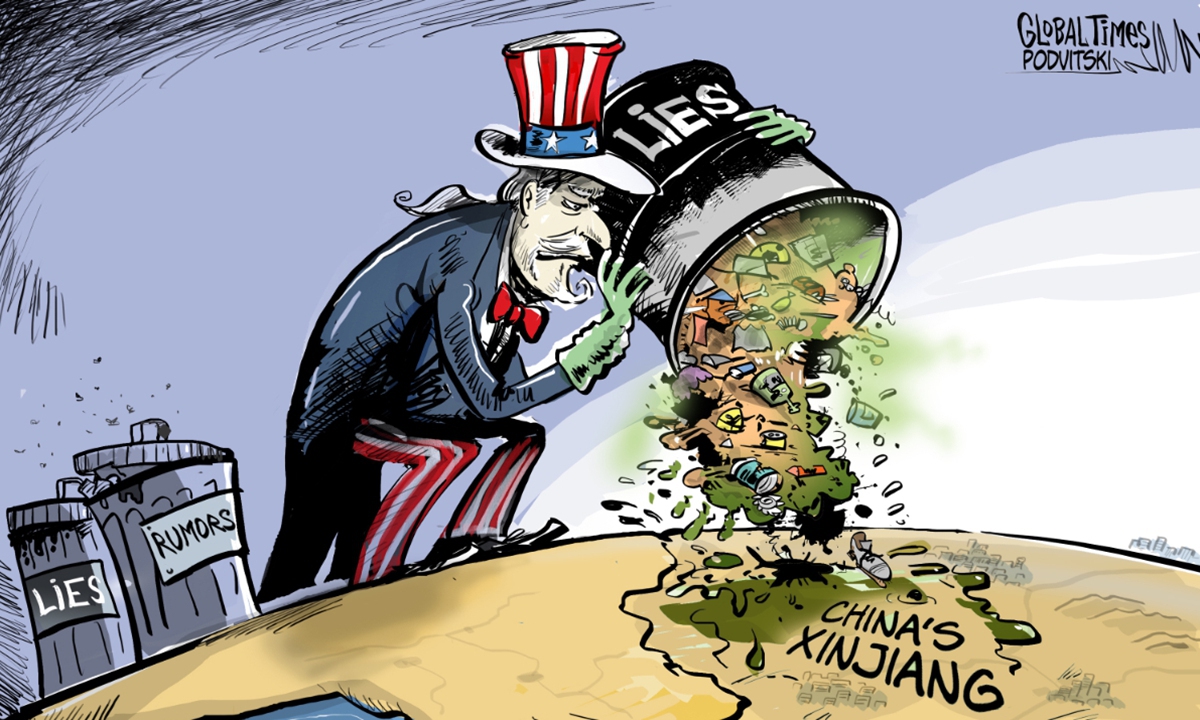
Slandering Xinjiang -- the new normal of the "empire of lies" Illustration: Vitaly Podvitski
A resolution opposing a series of US sanctions related to Northwest China's Xinjiang Uygur Autonomous Region and providing support for affected companies was unveiled and took effect on Monday, according to the regional legislator.
The resolution aims to expose to both the international community and the people of Xinjiang, what is clearly the US sinister intention in implementing sanctions against Xinjiang, to reveal the US suppression of the region's enterprises and its undermining of Xinjiang's social stability and development. It also supports the development of sanctioned enterprises and related industries.
According to local authorities, the enterprises sanctioned by the US for so-called forced labor allegation are in industries enjoying advantages in Xinjiang region, contributing significantly to job creation for the rural workforce and increasing farmers' incomes.
The so-called "Uyghur Forced Labor Prevention Act," which took effect in June 2022, prohibits the entry of Xinjiang goods into the US market in the name of combating "forced labor."
The resolution calls on local authorities to strongly object to the groundless sanctions, and provide support for the sanctions-hit enterprises and associated industries to encourage them to flourish, as it is their just position and unshakable duty.
It also encouraged the sanctioned enterprises to enhance their awareness of potential dangers, establish confidence in victory, and actively respond to the unreasonable provocation and suppression of sanctions by the US.
Employment is the utmost human right and a demonstration of respect for labor rights. The US and some Western countries, however, have lobbed trumped-up charges against China's production methods, inevitably affecting the normal export of local products, said Wang Sixin, an expert in human rights and a law professor at the Communication University of China.




